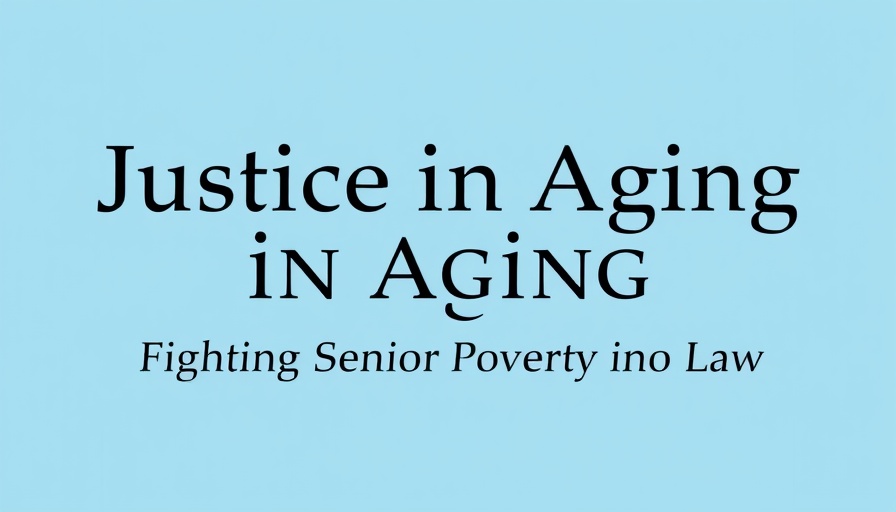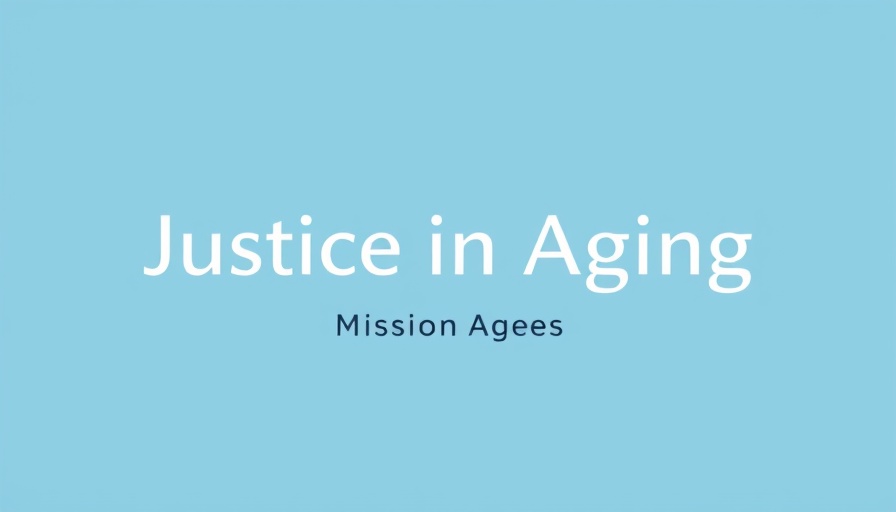
Congressional Budget Cuts: A Looming Crisis for Seniors
In a move that has sent shockwaves throughout the senior community, the House of Representatives recently passed a budget resolution that threatens significant cuts to essential programs like Medicaid and SNAP. These programs are critical lifelines for older adults who depend on them for health care and nutritional needs. The Senate has also approved this budget blueprint, setting the stage for legislation that could impact millions who rely on support during their golden years.
Understanding the Proposed Cuts and Their Impact
The resolution aims to cut trillions in funding for Medicaid and SNAP, all in an effort to subsidize tax breaks for the wealthiest individuals and corporations. It's a disturbing trend where lawmakers are sidelining the needs of aging populations in favor of financial advantages for the affluent. Kevin Prindiville, Executive Director of Justice in Aging, said it best: “Congress ignored their constituents and chose billionaires.” This sentiment resonates among seniors across the nation who feel betrayed by the very representatives whose primary job is to protect them.
Factors Contributing to the Cuts
Part of the rationale behind these drastic budget measures is the growing pressure to finance immigration enforcement. The budget focuses on reallocating funds, often at the expense of programs that support the most vulnerable demographics. While advocacy groups have voiced their opposition, the momentum in Congress hints at a rapid legislative process that doesn’t prioritize public welfare. By Memorial Day, there may be irreversible decisions made that affect the future of health care and food assistance for seniors.
What Can Seniors Do?
The time for action is now. Seniors and their advocates need to urge Congress members to resist these harmful budgetary measures. Directly calling your Senators and Representatives can make a difference: simply dial 202-224-3121 to raise your voice against cuts to Medicaid and SNAP. Additionally, utilizing templates for letters to communicate your concerns provides a structured way to share your personal stories and experiences with lawmakers, giving a human face to these critical issues.
Community Advocacy: Amplifying Voices
Sharing your journey can create a powerful collective narrative. Groups like Caring Across Generations have tools available for seniors and caregivers to share their personal stories, whether through written accounts or video testimonials. Highlighting the real-life implications of funding cuts can help sway public opinion and remind officials that neglecting their constituents is not an option.
The Bigger Picture: A National Issue
This situation is not isolated; it speaks to a broader failure to safeguard the social safety net for all age groups, particularly the aging population. Parallel to this fight is the ongoing debate regarding health care affordability and access—issues that have plagued the U.S. for years. As more seniors become increasingly vocal against Medicaid and SNAP cuts, the ripple effects could lead to a movement demanding broader systemic changes.
Looking Ahead: Implications For the Future
The push towards de-funding these essential support systems could spur wider calls for reform in health care policies, as millions face potential loss of access to necessary services. Without pressure from constituents, we may see a future where essential services are further dismantled, disproportionately affecting the elderly and disabled. The stakes are high, and every action counts toward safeguarding the well-being of America’s seniors.
Now, more than ever, engagement and advocacy are crucial. Seniors must not only grasp the urgent challenges they face but also become empowered to insist on their rights for equitable treatment in health care and social services. It’s imperative to act swiftly and decisively to protect those in need.
Join the movement to safeguard essential programs. Call your representatives, share your story, and stand up for the rights of older adults in America. Together, we can make a change.
 Add Row
Add Row  Add
Add 




 Add Row
Add Row  Add
Add 

Write A Comment